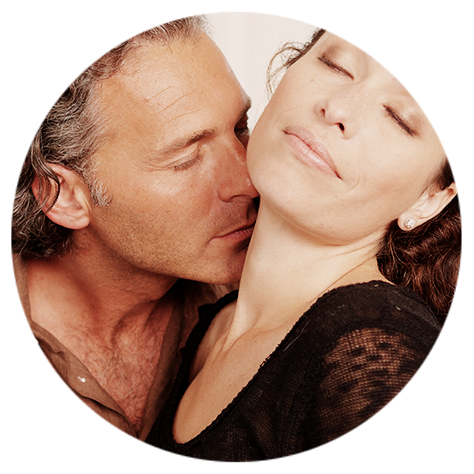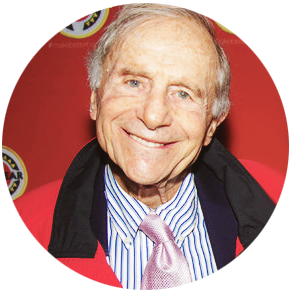
Meet my new 90-year-old “boyfriend!”
While I was enjoying a pedicure yesterday, a preppy, handsome older man was led to the chair at the other end of the row. Slight, and no more than 5’6″, he had gray-silver hair and was somewhat balding. He was wearing loafers, a polo shirt, and khakis. “Bet I’m the oldest person who has ever been in here,” he declared to the woman preparing his foot bath. “I’m 90.”
Without missing a beat, he asked if anyone knew that Chelsea Clinton just gave birth and whether she had a boy or a girl.
“Who is that man?” I asked Angela, my long-time manicurist. I had a hunch he was someone I wanted to meet. “I think he’s a professor,” she answered, although she doesn’t always get things like this terribly accurate. Turns out, he’s a regular at the salon.
“Davy,” Angela projected, to get the man’s attention across the row of pedicure chairs. “Where do you teach?”
“I don’t teach” he answered. “I run a nonprofit organization that works with public school students in poor communities.”
“What is it called?” I chimed in, this being the perfect opportunity to find out more about “Davy.”
Find out I did. Turns out that “Davy” is David Caplan, vice board chair and dean of City Year New York.
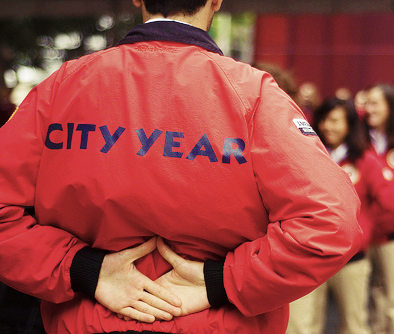
Founded in 1988 by two Harvard Law School roommates, City Year’s mission is to fight the national dropout crisis by bridging the gap in high-poverty communities between the support that students actually need, and what their schools can provide. It invites young Americans, age 17 to 24, to “Give a Year. Change the World.” Those selected for the program agree to do 10 months of national service working full-time as tutors and mentors at high-need public schools. City Year operates from over 20 cities nationally.
Along with thousands of other non-profit organizations, City Year is a member of the AmeriCorps network. As a matter of fact, it was the driving force behind President Bill Clinton’s decision, in 1993, to establish AmeriCorps as a means for Americans to serve the needs of communities in education, the environment, public safety, health and homeland security. David told me the Clinton Foundation is one of City Year’s largest benefactors. Ah, I thought to myself, no wonder he mentioned Chelsea Clinton earlier.
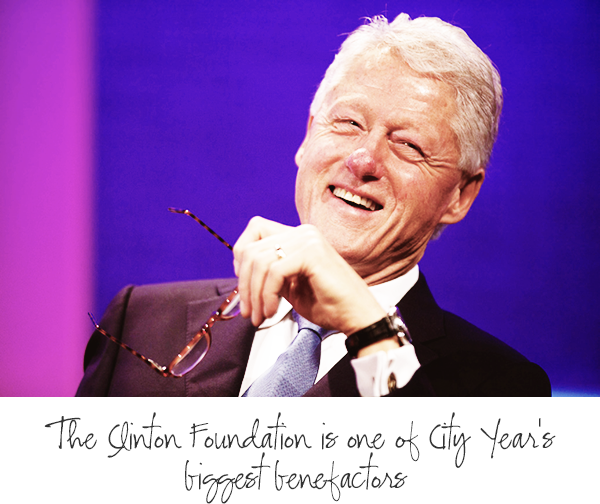
No typical nonagenarian, David told me he goes to work every day, traveling by subway from the upper east side of Manhattan to City Year’s offices downtown. “David’s passion and enthusiasm for the work of City Year go way beyond being a board member. He consistently strives to be a resource to corps members and often makes the time to volunteer alongside them. His outstanding commitment and energy have earned him the title of ‘Dean of City Year New York,’ the organization’s website related.
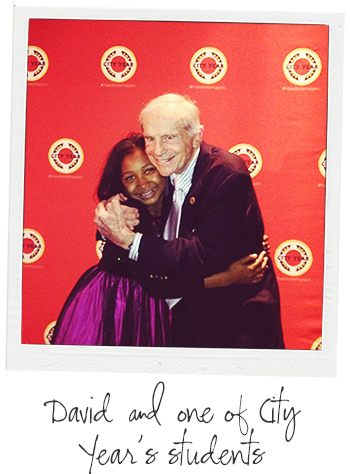
“My wife Barbara is not thrilled with the fact that I spend 50 hours a week at City Year and get paid $1 a year,” David chuckled. Barbara was a partner for Yankelovich Partners, Inc., (the leading U.S. marketing research and consulting firm), he told me. (When I Googled her later, I learned she’s a prominent expert on consumer trends and one of America’s foremost authorities on the food, retail, fashion, housing and personal care industries.)
Married over 60 years, the Caplans have five children and happen to live directly across the street from me.
A former Navy pilot during World War II, David graduated from Notre Dame and received a graduate degree in marketing from Harvard University. Before starting his community service career in 2003, he was in the garment industry, where he headed up Evan Picone, one of the hottest women’s apparel brands when I was in my twenties and thirties. As a former editor on Women’s Wear Daily, once the “bible” of the apparel business, I knew many of the same people David did, so we did a little reminiscing.
His pedicure complete, David prepared to leave. As we exchanged business cards, I mentioned how fortunate he was to be in such good shape. “I’m scared to death of Alzheimer’s,” I said. “I know,” David responded, a note of melancholy 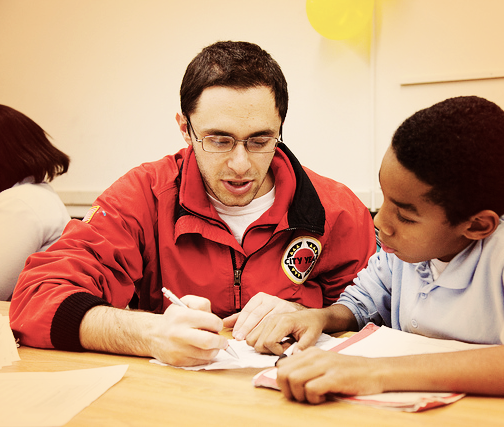 in his voice. “So many of my friends have gotten it, some you’d never expect would.”
in his voice. “So many of my friends have gotten it, some you’d never expect would.”
“I do have a problem with my eyes,” he went on, “macular degeneration, like my father had. I got it two years ago.” Damaging the retina, the disease took the sight from David’s left eye, and left him with less than 20 percent vision in his right. Still, he doesn’t even use a cane. “I’ve discovered all kinds of little tricks to get around,” he explained, picking up an illuminating device he uses to read.
No doubt a man with his track record would come up with ways to solve problems, I smiled to myself.
“Since we live across the street from each other, perhaps you and your wife can come for lunch,” I said.
“Oh no, never mind my wife. I’ll come alone,” David answered, his eyes looking ever-so-slightly mischievous.
“You’re so handsome at 90. You must have been a devil when you were younger,” I laughed. (What am I saying, I thought, he’s a devil now.)
“I loved talking to you. You’re so much fun,” David responded.
“Why, thank you,” I said, thinking how much fun it is for me to meet inspiring people like David.
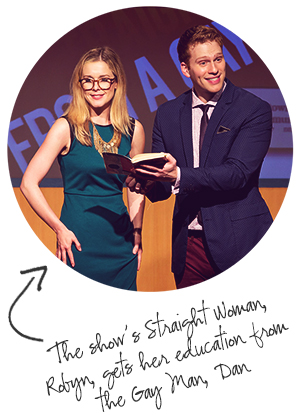
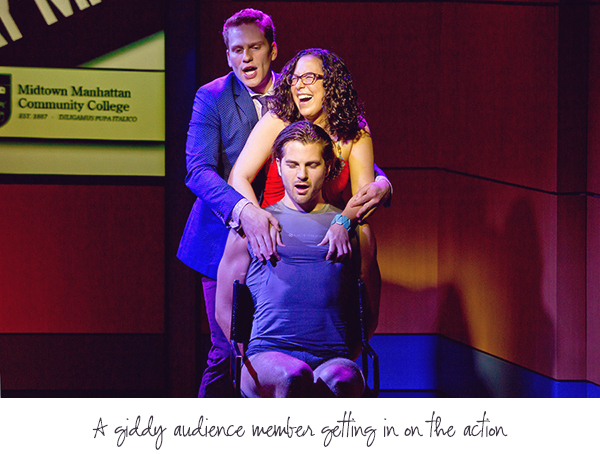






 in his voice. “So many of my friends have gotten it, some you’d never expect would.”
in his voice. “So many of my friends have gotten it, some you’d never expect would.”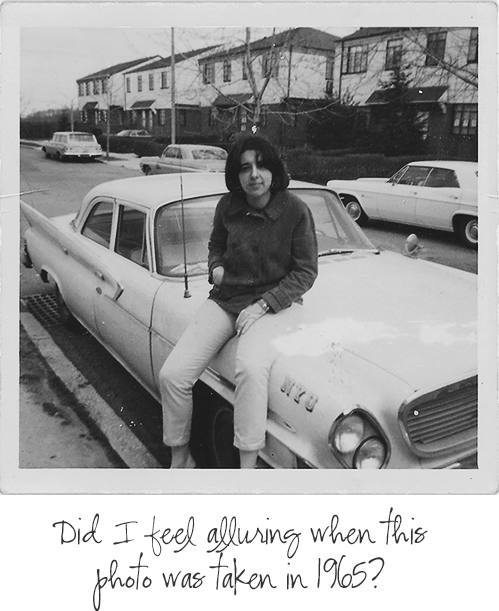
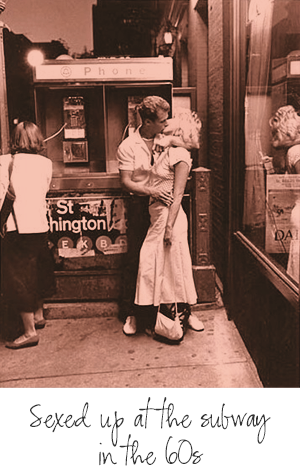 20 feet of him. Four years my senior, Barry had served for two years in Vietnam, before returning to NYU to complete his undergraduate studies. He was the handsomest man I had ever met, and he was smart and worldly.
20 feet of him. Four years my senior, Barry had served for two years in Vietnam, before returning to NYU to complete his undergraduate studies. He was the handsomest man I had ever met, and he was smart and worldly.